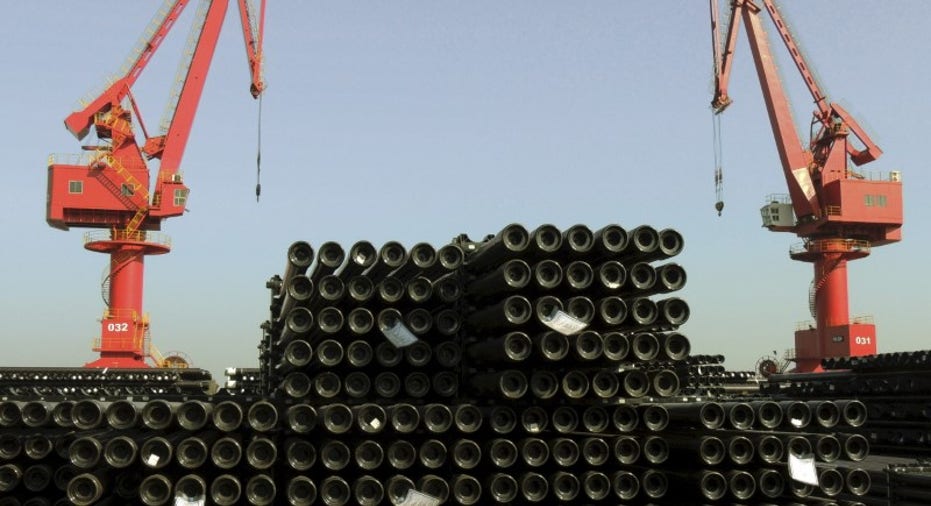U.S. Steelmakers Press Their Luck With Price Increases

U.S. steelmakers moved fast to raise prices after new tariffs were levied on some foreign competitors last year, but the quick increase has alienated some buyers and threatens to short-circuit a steel-market rebound.
Domestic steel companies have raised prices by as much as 50% on popular types of steel in recent months. That has boosted their profits, but troubled customers who say they can't afford the higher cost. Steel users say they are looking for cheaper alternatives from countries unaffected by the tariffs.
"We can't pass along this kind of increase to our customers," said Stuart Speyer, president of Tennsco Corp. a Tennessee-based manufacturer of steel shelves and file cabinets. He said his suppliers have raised steel prices seven times since October, adding about $180 to the cost of a ton of steel.
The U.S. government imposed duties on dozens of foreign steel producers found to be receiving unfair state aid or setting prices below the cost of production. Tariffs of more than 500% were levied on some products from China, the world's largest steel producer.
A big increase in steel production capacity overseas disrupted the U.S. steel market. When demand weakened in major foreign markets, such as China, steelmakers maintained production by accelerating exports to the U.S. and cutting prices on the steel to attract customers. While steel customers benefited, domestic steel producers idled plants and laid off workers amid the sliding prices. But when the tariffs negated cut-rate supplies, U.S. steel producers bounced back. Imports' share of the steel market in the U.S. fell to 25% last year from 29% in 2015.
Domestic producers have used their improved leverage to increase their prices. Ohio-based AK Steel Holding Corp. (NYSE:AKS), for instance, has announced three price increases for its carbon steel products this year following on nine in 2016. Other producers in the U.S., including U.S. Steel Corp. (NYSE:X), ArcelorMittal SA (NYSE:MT) and Nucor Corp. (NYSE:NUE), have raised prices too, according to analysts. AK Steel, U.S. Steel and ArcelorMittal declined to discuss their pricing strategy.
Nucor spokeswoman Katherine Miller said the price increases were in order, after cheap steel depressed the domestic market. "The situation was unsustainable," she said. The duties, she said, "allow pricing to be determined by market forces and not be distorted by foreign government subsidies."
Last month, North Carolina-based Nucor said its first-quarter profit would be between $1.10 and $1.15 a share, up from 27 cents for the same quarter last year.
U.S. steel consumption in the first two months of the year was up nearly 9% from a year earlier, but some analysts say producers in the U.S. misjudged demand in raising prices aggressively. "Demand is OK, but it's not as strong as it needs to be to support the price increases we've seen," said Becky Hites, president of steel market consultancy Steel-Insights LLC in Atlanta. She expects steel demand to weaken later in the year.
The tariffs on steel haven't blunted imports entirely. Steel imports for January and February rose nearly 2% from a year earlier. "There are dozens of countries that ship steel into the U.S. that have no tariffs," said Kevin Dempsey, vice president for public policy for the American Iron and Steel Institute.
Steel imports from Vietnam, for example, rose more than 300% last year. U.S. companies have accused foreign producers facing tariffs of using Vietnam to funnel their steel to the American market duty-free. The companies asked the Commerce Department in September to investigate. The case is pending.
Analysts warn that higher prices in the U.S. will eventually drive down steel demand if U.S.-based manufacturers start losing business to foreign competitors who can buy cheaper steel in their countries and export finished products to the U.S.
President Donald Trump's desire to make U.S.-made products more competitive globally also could be undermined. Passing on higher U.S. steel costs in exports is difficult when foreign companies have access to deeply discounted steel, said Hale Foote, president of California-based Scandic Springs Inc. His company, which makes stamped springs and other steel parts, has seen costs for U.S.-made stainless steel rise 20% in four months.
"It really puts U.S. metal stampers in a pickle," Mr. Foote said.



















